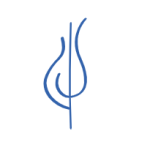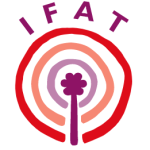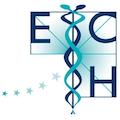Our Partners
IVAA works within a larger movement to increase acceptance of and access to complementary medicines and treatments.
In addition to representing our member organizations, IVAA is a committed part of a larger movement to increase access to complementary medicines and treatments as valuable additions to conventional medicine. We believe that uniting these complementary therapies with conventional therapies into fully integrative medical systems will improve the quality of care and lead to better health outcomes for patients.
Delivering on this commitment to pluralism in medical care – that is, taking into account the wide variety of medical approaches that exist – will give patients the resources necessary to help restore their own health. In particular, IVAA cooperates with a number of related associations to work towards meeting the World Health Organization’s call for greater integration of anthroposophic and other complementary therapies into healthcare, to work towards better regulation of these treatments and health products, and to encourage more research and investment into understanding the potential benefits and risks of these therapies.
A joint document produced by IVAA, the European Committee for Homeopathy (ECH), the European Council of Doctors for Plurality in Medicine (ECPM), and the International Council of Medical Acupuncture and Related Techniques (ICMART) – altogether representing 132 complementary and alternative medical associations – on the health potential of these medical approaches in Europe is available here [pdf], and a manifesto calling for its integration into European health systems is available here [pdf].
IVAA cooperates with the following groups in working towards these shared goals:
Partnerships: Associations in which IVAA is an active member
Click on each association’s logo to visit its website.

European Public Health Alliance (EPHA):
EPHA is a coalition of public health non-governmental organizations, patient groups and health professionals working to strengthen public health throughout Europe along key themes, including antimicrobial resistance, digital health, health economics and universal access to affordable medicine.

EUROCAM is a foundation that brings together organisations representing patients and health professionals in CAM, with the aim of promoting CAM as a way to prevent illness and maintain health. It covers a broad range of therapies, including anthroposophic medicine, acupuncture, herbal medicine, and traditional medicine.

CAMDOC is an alliance of four organisations – including the IVAA, the European Council of Doctors for Plurality in Medicine, the International Council of Medical Acupuncture and Related Techniques, and the European Committee for Homeopathy – and works to facilitate the integration of CAM modalities into European health policy.

Academy of Integrative Health and Medicine
The AIHM works to link integrative health professionals together to advocate for holistic, personalised health care. Its approach also looks at environmental and social determinants of health, including the state of the planet and the quality of interpersonal relationships.
International anthroposophic medicine organisations
Click on each organisation’s logo to access its website.

Medical Section of the School of Spiritual Science at the Goetheanum:
The Medical Section coordinates and supports the further development of anthroposophic medicine, including through organisation of events and provision of trainings.

European Alliance of Initiatives for Applied Anthroposophy (ELIANT):
Eliant works to promote several aspects of anthroposophic thought, including anthroposophic medicine and also education, agriculture and other initiatives.

International Association of Anthroposophic Pharmacists (IAAP):
IAAP acts as a centre of information for sharing best practice in anthroposophic pharmacy, including by publishing guiding principles for pharmacists.

European Federation of Patients' Associations for Anthroposophic Medicine (EFPAM):
EPFAM represents the interests of its member patient associations who want to use anthroposophic medicine in integration with other medicines.

European Scientific Cooperative on Anthroposophic Medicinal Products (ESCAMP):
ESCAMP is working to develop a regulatory framework for anthroposophic medicinal products, including through setting standards for assessment of safety, efficacy and cost-effectiveness.

European Coalition on Homeopathic and Anthroposophic Medicinal Products (ECHAMP):
ECHAMP works to develop the anthroposophic and homeopathic medicinal product industry in order to ensure greater availability for self-medication and via prescription.

International Forum for Anthroposophic Nursing (IFAN):
IFAN works to set out guidelines, coordinate trainings and education and encourage professional exchange for anthroposophic nursing.

International Coordination of Eurythmy Therapy (ICET)
Affiliated with the Medical Section, this is a network representing those working in eurythmy, which is movement as a form of therapy.

International Coordination of Anthroposophic Arts Therapies (ICAAT):
Affiliated with the Medical Section, ICAAT provides information on, represents the interests of anthroposophic art therapies worldwide. It also provides networking opportunities.

International Association for Anthroposophic Body Therapy (IAABT):
Affiliated with the Medical Section, IAABT brings together all body and movement therapies incorporating anthroposophic principles. It is an information platform for practitioners.

International Federation of Anthroposophic Therapies (IFAT)
Affiliated with the Medical Section, it is dedicated to political, legal and professional development of anthroposophic therapies (Eurythmy Therapy, Art Therapies and Body Therapies) worldwide.

Anthroposophic Council for Inclusive Social Development:
The Council represents the worldwide network of anthroposophic organizations supporting individuals with disabilities.

The European Council for Steiner Waldorf Education (ECSWE):
ECSWE represents 712 schools in 28 European countries, via 26 national associations. Its mission is to promote independent education in Europe in the Steiner tradition.
Other related organisations
Click on each organisation’s logo to visit its website.

Academic Consortium of Integrative Medicine:
With a membership comprised of academic medical centres and affiliates, the Consortium aims to advance principles and practices of integrative healthcare in academic institutions.

U.S. National Center for Complementary and Integrative Medicine (NCCIH):
Affiliated with the National Institutes of Health, the NCCIH is the US government agency focussed on scientific research of medical systems outside conventional practice.

Cochrane Complementary Medicine:
Based at the University of Maryland Center for Integrative Medicine, this group contributes to systematic reviews clinical trials in complementary and alternative medicine and disseminates results to practitioners.

International Council of Medical Acupuncture and Related Techniques (ICMART):
ICMART is a non-profit based in Brussels and is an umbrella organisation representing medical acupuncture and related therapeutic approaches. Its members are medical acupuncture associations.

Homeopathy Research Institute (HRI):
HRI was created to apply scientific rigor to research in homeopathy, in particular in terms of efficacy as compared to conventional medicine.

European Committee for Homeopathy (ECH):
ECH promotes scientific development of homeopathy, including advocating for professional standards in education, training and practice of homeopathy in medical contexts.


